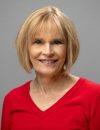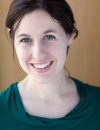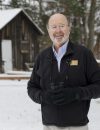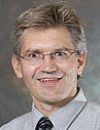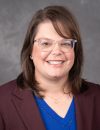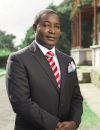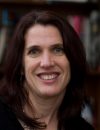Jake Baggott doesn’t remember precisely where he was or on what day he first heard the term “COVID-19,” but the coronavirus has since consumed most of his waking hours.
UW In The News
-
Why we should explore Venus before Mars
Not so fast. The Pioneer probe sent to Venus in 1978 detected traces of methane in that CO2-filled atmosphere. Methane is a rare chemical to produce without life acting as some kind of intermediary. “People tried to explain it away and they couldn’t,” says Sanjay Limaye, a planetary scientist at the University of Wisconsin–Madison, and a former chair of NASA’s Venus Exploration Analysis Group.
-
Know Your Madisonian: UW-Madison health director leads COVID-19 response behind the scenes
-
From 47 Primaries, 4 Warning Signs About the 2020 Vote
“We were fortunate that the pandemic hit during the primaries rather than the general election,” said Barry C. Burden, the director of the Elections Research Center at the University of Wisconsin-Madison. “It provided a sort of training ground for states to turn the corner on voting by mail.”
-
Biden’s low-key strategy vexes Trump, but in-person campaigning beckons
“I don’t see how that’s sustainable through the fall election,” professor Barry Burden, director of the Election Research Center at the University of Wisconsin-Madison, told AFP.”
There will come a point where Biden will need to be a physical presence on the campaign trail, if only to reassure voters he is a real person, in good health and ready to serve.”
-
Across the U.S., families are having tough talks about racism
“Absent these kinds of conversations, the status quo wins,” said Patricia Devine, psychology professor and director of the Prejudice Lab at University of Wisconsin-Madison. “And the status quo is being revealed to us to be unacceptable in terms of costing people their lives only because of the color of their skin. That can’t stand.
-
The chicken first crossed the road in Southeast Asia, ‘landmark’ gene study finds
But Jonathan Kenoyer, an archaeologist and Indus expert at the University of Wisconsin, Madison, remains skeptical that the chicken arose in Southeast Asia. “They need to get ancient DNA” to back up their claims, he says, because genomes of modern birds may provide limited clues to early events in chicken evolution.
-
Coronavirus Is a Crisis. Might It Also Narrow Inequality?
Scholars are brimming with ideas to construct a more generous safety net on a permanent basis, bolstering everything from Medicaid to child care support. Timothy Smeeding, a professor of economics and public affairs at the University of Wisconsin, Madison, suggests that the federal government pick up the entire tab for Medicaid, which it now shares with the states.
-
UW-Madison Medical School Dean Predicts Ups And Downs With COVID Vaccines, Cures
UW-Madison announced on Wednesday it was one of 32 sites for a clinical trial testing an existing drug called ruxolitinib as a way to prevent a COVID-19 complication where a patient’s immune system kicks into deadly overdrive. Hospitals in Milwaukee and Madison are also investigating convalescent plasma from recovered patients to treat those with active infections.
-
UW joins drug trial aimed at preventing major COVID-19 killer: Haywire immune response
The majority of people who die from COVID-19 are killed by a dangerous immune system overreaction called a cytokine storm, but researchers at the University of Wisconsin-Madison and dozens of other sites around the world are now testing a potential weapon against it.
-
Trump’s strike at Twitter risks collateral damage inside the executive branch
And this order in particular may have trouble standing up to scrutiny. Kenneth Mayer, a professor of political science at the University of Wisconsin-Madison and an expert in executive orders, called the language “complete gobbledygook.”
-
The Garlic Will Tell You When It’s Time
Today, wild garlic is found only in parts of Central Asia, but it may once have grown wild from China to India, Egypt and Ukraine, according to Philipp W. Simon, a research leader at the Agriculture Department’s Agricultural Research Service and a professor in the University of Wisconsin-Madison’s department of horticulture. From those ancient beginnings, garlic has traveled the globe to become one of the world’s most important vegetable crops.
-
Black Americans Are At Higher Risk For Alzheimer’s: Here’s Why
Among other things, chronic stress contributes to inflammation and vascular disease, and can even directly damage the brain’s neurons. “This can lead to a slew of health issues, including atrophy in areas of the brain that are key for memory and cognition,” says Megan Zuelsdorff, PhD, an assistant professor at the University of Wisconsin-Madison School of Nursing investigating the mechanisms underlying cognitive health and dementia disparities.
-
Living in Poverty May Increase Alzheimer’s Risk
“Putting tissue samples into socioeconomic context will allow us to better understand the socioeconomic mechanisms that may drive disease,” said the senior author, Dr. Amy J.H. Kind, an associate professor of medicine at the University of Wisconsin.
-
Fewer Than Half Of Wisconsin Grocery Shoppers Mask Up
“We think of masking as this seemingly simple intervention, but it’s rather complex,” said Dr. Nasia Safdar, associate professor of infectious diseases at the University of Wisconsin School of Medicine and Public Health.
-
Is It Safe To Visit Family And Friends?
Malia Jones of the Applied Population Lab at the University of Wisconsin-Madison studies how the places we spend time affect our health and how diseases spread in those places.
-
For Milwaukee Dads, Help Figuring Out Fatherhood
Quoted: It’s not unusual for men to struggle after the birth of a child, says Tova Walsh, an assistant professor of social work at the University of Wisconsin-Madison who has studied fathers and parent-child relationships. There are financial pressures, expectations to try to meet and lifestyle adjustments to make.
In the history of family services, fathers have been overlooked and neglected, Walsh says, with sometimes clinical consequences. “Paternal depression is underrecognized,” she says.
-
In-person election, protests, bars opening. None appear to have spiked COVID cases. Experts hope public precautions keep spread in check
Quoted: “This is just a sliver of the nearly 6 million people in Wisconsin,” said Patrick Remington, an epidemiologist and a professor of population health sciences at the University of Wisconsin-Madison. “These were highly visible and they could be high risk, but in reality, these were isolated events.”
“It is really hard to isolate one thing when so many things are going,” said Ajay Sethi, an epidemiologist and associate professor of population health sciences at the University of Wisconsin-Madison.
“We cannot deny such an impact because of people on the street in public, standing close and shouting out and not wearing masks. That is ideal to spread the virus,” said Song Gao, assistant professor at the UW-Madison Geospatial Data Science Lab.
Oguzhan Alagoz, a professor of industrial engineering and infectious disease modeling expert at the UW-Madison, said his work shows social distancing adherence plays a major factor in the spread of coronavirus.
“Me and my family are also tired of being careful,” Alagoz said. “But unfortunately we cannot get super comfortable. … People should still be careful. Wearing masks, I think, is important, especially indoors.”
-
Worried About Your Kids’ Social Skills Post-Lockdown?
In fact, having parents who worry excessively about what their kids are missing out on is likely more damaging than missing out on experiences, said Dr. Seth Pollack, Ph.D, a psychologist at the University of Wisconsin-Madison.
-
What if all viruses disappeared?
“If all viruses suddenly disappeared, the world would be a wonderful place for about a day and a half, and then we’d all die – that’s the bottom line,” says Tony Goldberg, an epidemiologist at the University of Wisconsin-Madison. “All the essential things they do in the world far outweigh the bad things.”
-
Opinion: Black men and boys are especially vulnerable to mental health challenges because of coronavirus and police violence
Somewhere in America, a 14-year-old Black boy is playing video games in his room, and his parents are satisfied that they are keeping him safe from COVID-19. But then, in Minneapolis, George Floyd is killed by a police officer, and his parents are reminded that their son’s life could just as easily be snuffed out.
Author Alvin Thomas is an assistant professor in the Human Development and Family Studies Department in the School of Human Ecology at the University of Wisconsin-Madison.
-
UW-Madison’s plan to reopen campus in fall: masks, free testing, hybrid classes
Come on back to campus this fall, UW-Madison told its 45,000 students Wednesday.
-
Dominion Energy and Vanguard Renewables are turning cow manure into power
Rebecca Larson, an associate professor of biological systems engineering at the University of Wisconsin, has studied the climate effects of agriculture and the biological processes that take place when microorganisms break apart manure.
-
Dominion Energy and Vanguard Renewables are turning cow manure into power
Rebecca Larson, an associate professor of biological systems engineering at the University of Wisconsin, has studied the climate effects of agriculture and the biological processes that take place when microorganisms break apart manure.
-
Indoors, yelling and packed crowds: Experts sound alarm ahead of Trump’s Tulsa rally amid coronavirus
“The presence of a mask there isn’t going to do anything until somebody actually puts it on and keeps it on,” said Dr. Nasia Safdar, the medical director of infection control and prevention at the University of Wisconsin-Madison.
-
How Humanity Has Unleashed a Flood of Zoonotic Diseases
“If this isn’t the wake-up call, nothing is going to be,” says Tony Goldberg, an infectious-disease ecologist and professor of epidemiology at the University of Wisconsin, Madison.
-
Activities to Help Fight Depression
“There has been increasing evidence that mindfulness meditation – or the ability to pay attention to one’s body, thoughts and emotions in a nonjudgmental way – can have an antidepressant effect,” says Richard Davidson, a professor of psychology and psychiatry and founder of the Center for Healthy Minds at the University of Wisconsin–Madison. “The idea is that just like physical exercise builds muscle, we can build our mental muscles to become more aware and calm in the faces of challenges and stress.”
-
What We Know About Face Shields and Coronavirus
Some companies, including Midwest Prototyping, that already provide shields to hospitals are also starting to sell to consumers. Additionally, the University of Wisconsin-Madison offers open-source shield design for its Badger Shield, which is being used both in hospitals and nonmedical settings, says Lennon Rodgers, director of the university’s Grainger Engineering Design Innovation Lab.
-
Drought and Fire Concerns Intensify as a Flash Drought Develops in Plains, Heat Builds in Southwestern, Central U.S.
Jason Otkin, a drought researcher at the University of Wisconsin-Madison, said he uses at least a two-category worsening in the U.S. Drought Monitor over a four-week period or a three-category intensification over an eight-week period as criteria for a flash drought.
-
Trudeau’s 21-Second Pause Wasn’t An Awkward Silence
Beyond damage control, it’s become common practice in leadership to work in moments of silence. As University of Wisconsin-Madison professor of psychology and psychiatry Richie Davidson, a confidante of the Dalai Lama, shared in a recent interview with my home institute, his team regularly takes “2-3 minutes between meetings” to sit in meditation. What this silence does for the problem at hand, far from turning away, is allow us to turn toward it—the problem within ourselves.
-
Real-life scientists inspire these comic book superheroes
In 2015, Gardiner and two other friends, Khoa Tran and Kelly Montgomery, founded an online publishing company called JKX Comics. At the time, the three were pursuing Ph.D.s in different fields at the University of Wisconsin–Madison. And they knew how tough it can be to explain research or engage students in the nuances of science.
- Newer stories
- Page 56 of 140
- Older stories
Featured Experts
Kathleen Glass: Food safety
Food is an integral part of Thanksgiving. And who doesn't love leftovers? But after how long should you leave those… More
Cecelia Klingele: Body-worn cameras by police
Madison Police Chief Shon Barnes is requesting that the city fund widespread use of body cameras for officers in the… More
Stanley Temple: Fall phenology
The days have finally started getting cooler and we all know winter awaits. Stanley Temple, an expert on birds, wildlife, endangered… More
Jonathan Temte: The seasonal flu shot
Family medicine professor Jonathan Temte is available to discuss this year's updated seasonal flu shot and flu prevention and control. More
Noelle LoConte: Pancreatic Cancer Awareness Month
Pancreatic cancer is one of the most difficult cancers to prevent, diagnose or treat. Earlier this month, music legend Quincy… More
Alvin Thomas: Movember and Men's Health Month
You might see more facial hair this month as Movember goes into full effect, drawing awareness toward men's health. Alvin… More
Dominique Brossard: Vaccine hesitancy
With a new administration poised to take power in January, a change in policy regarding vaccines may also be on the way.… More

